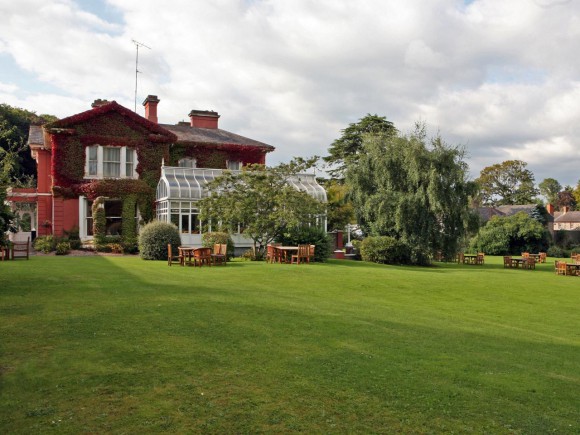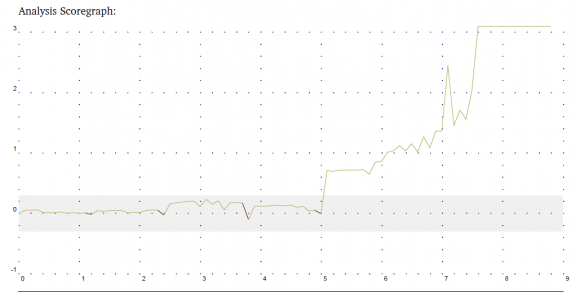A big part of joining the local chess club was to enter the leinster leagues this year and get a few solid games. So I’m now playing in the Bodley Cup, Group A on the Benildus B team. The Bodley is division 6 in the leagues, and they have too many teams this year so they’ve split them into two groups. A isn’t better than B, they’re meant to be even and the winners in each will play each other for the final title. There’s talk of resurrecting division seven next year to cope with the increase in numbers. And yeah, I don’t know why Benildus A is in Bodley B, and Benildus B is in Bodley A either. And it doesn’t help when at the club they start talking about the Bodley A or Bodley B team and I lose track of who they’re on about 😀 Anyway…
The matches (by the way, I’m writing this for those who don’t play much OTB chess in Ireland and don’t know this, those of you who do play chess in clubs, sorry to bore you 🙂 ) use a standard time control of 90 minutes per side, so they can run to a maximum of three hours; there’s one roughly every two weeks, and the home games just happen on the normal club night and the away matches either happen on the other team’s club night if they’re close by or on Saturday afternoon if they’re a bit of a drive away. And you don’t have to (or even get to) play in every match – the club submits a panel of players and for every match chooses five players to play (who are then put on boards one through five in order of ability). So out of the nine matches Benildus B will play in, I would only expect to play in six of them at most. But I was on the cards for the first match, if only because as one of the only adults on the team, I can drive 😀
The first match was an away match on the Saturday the weekend before last (yes, this took a while to write, but they released Battlefield 4 in the interim 😛 ) against Drogheda Chess Club. Nice digs:
Arrived ten minutes before the start (if this was a target shooting match I’d want more time, but for chess, not so much), said hello to the other players, Kevin (the team captain) did the little bit of paperwork we had, and then we kicked off. I was playing board 4, and my opponent was a junior as usual (if you’re an adult starting off in chess, that’s something you just have to get used to) and had the white pieces. We went straight into a Caro-Kann opening as I was expecting we would, and it didn’t go too badly for most of the game, but towards the end I made a horrible blunder and it basicly threw the game away, which was a bit disappointing as it had been going well enough and it was probably the one move of the game where I didn’t have my “slow down” mantra running through my head. Here’s the game, with annotations:
[pgn eo=t initialHalfmove=65 autoplayMode=none pieceFont=alpha ss=64 ps=64 h=800 commentsDisplay=newline][Event “Bodley A 2013/4”]
[Site “Drogheda Chess Club”]
[Date “2013.11.02”]
[Round “1”]
[White “Jonathon Tsang”]
[Black “Mark Dennehy”]
[Result “1-0”]
[WhiteRating “945”]
[EventDate “2013.11.02”]
[Annotator “Stockfish 09-06-13 64bit”]
1. e4 c6
2. d4 d5
3. exd5 cxd5
4. Nf3 {Nf3 here? Odd…}
4. … Nf6 {Well, that should have been Bf5 but I think Nf3 threw me..}
5. Be2 {This… is not the caro kann mainline!}
5. … Bf5 {Right, back on track.}
6. O-O
6. … e6
7. Nc3
7. … Bd6 {Was thinking Be7 but Bd6 looked better because of the b8-h2 diagonal.}
8. Nb5 {Well, that was to be expected I suppose.}
8. … O-O {Giving up the bishop for a gain in development. Which I think in hindsight was a serious error.}
9. Nxd6
9. … Qxd6
10. Ne5
10. … Nc6 {Hoping for NxN followed by QxN and taking the c-file}
11. Bf4 {I hate that bishop. Sooooo much.}
11. … Qe7 {Worrying about Ng6 winning a rook.}
12. Nxc6
12. … bxc6 {Okay, no c-file, but there’s that nice b-file instead….but I can’t Rb8 because of BxR}
13. c4
13. … Rac8? +/-
{Expecting cxd, cxd and owning the c-file. The engines have a different suggestion though.}
( 13…dxc4 14.Qc1 Nd5 15.Bxc4 Nxf4 16.Qxf4 Qb4 17.b3 Rfd8 18.Rfd1 h6 19.Qd2 Qb6 20.Qc3 Rd7 21.Rd2 Rad8 22.Rad1 Qc7 23.f3 a5 = )
14. c5 {Oh. Yeah, chess, not checkers . And now Bd6 is a bit of a nasty threat. Need to guard the d6 square.}
14. … Ne8
15. Ba6
15. … Rd8 {Ra8 would just exile the rook. }
16. Qb3 {Looking to Qb7, and now QxQ , BxQ, Bd6? Ugh.}
16. … e5?! +/-
{Blocking off the line to d6, even if the pawn’s hanging as a result. The engines spot this as a really bad idea though.}
( 16…Qd7 17.Qb7 f6 18.Bg3 g5 19.Rae1 Rf7 20.Qb3 h5 21.h3 Ng7 22.Be2 h4 23.Bd6 Bh7 24.Bh2 Nf5 25.Qb4 Rg7 += )
17. Rfe1
17. … f6
{Defends e5 and gives an ecape route for Rf and Q, but opens the diagonal for an attack on the king. But Bf5 is there to help out.}
18. Rac1?! +=
{I never saw this in the game or immediately after, but the engines highlighted this as a bit of a blunder}
( 18.dxe5 Qd7 19.Qa4 Rf7 20.exf6 Nxf6 21.f3 Ne8 22.Bf1 Bc2 23.b3 Ra8 24.Rac1 Bf5 25.Be5 Nc7 26.b4 Bg6 +/- )
18. … g5?! +/-
{GO AWAY!}
( 18…Nc7 19.Qa4 Nxa6 20.Qxa6 Qc7 21.Bg3 Rde8 22.a3 Rf7 += )
19. Bg3
{Yay!}
19. … Nc7 D
{Now that Bg3 has happened, get on with the game.}
20. Bb7? D
{Odd. I expected Qb7 at this point and then Rb8 to counter. The engines expected Bf1…}
( 20.Bf1 Bd7 21.dxe5 Ne6 22.f3 f5 23.Qc3 f4 24.Bf2 a5 25.Bd3 Ra8 26.Red1 Rfb8 27.Qc2 Be8 28.Bf5 Nf8 29.Bd4 Ne6 30.Bc3 Bd7 31.Bd2 Nd4 +/- )
20. … Nb5? +=
{Going after the d4 fork point against Q&B but the engines have the better line}
( 20…Rb8 21.dxe5 Ne6 )
21. Bxc6
21. … Nxd4
22. Bxd5+ {And now we’re committed to the exchange to come, but I’d counted that and can come out equal.}
22. … Be6
23. Bxe6+
23. … Qxe6
24. Qxe6+
24. … Nxe6 {Okay, that went as foreseen. }
25. c6
25. … Rd2 {Thinking that the knight can block the c pawn and this gives me a rook on the 7th.}
26. c7
26. … Nd4?? +- {I think I fell asleep here and just looked at the Ne2 fork. Stupid. Rc8 was so much better. This is the mistake that threw the game away.}
( 26…Rc8 27.h4 gxh4 28.Bxh4 Kf7 29.Re3 Rxc7 30.Rxc7+ Nxc7 31.Rb3 Nd5 32.Rb7+ Kg6 33.Rxa7 Rxb2 = )
27. c8=Q
27. … Rxc8
28. Rxc8+ {Ah. Right. Miscounted that.}
28. … Kg7
29. Rc7+
29. … Kg6
30. Kf1
30. … Nf5
31. Rxa7
31. … Nxg3+
32. hxg3
32. … Rxb2 {Why not? It’s free…}
33. a4
33. … Ra2 D {Get in behind the passed pawn.}
34. a5 +-
( 34.g4 h5 35.gxh5+ Kxh5 36.Ra6 f5 37.Rxe5 Kg4 38.f3+ Kf4 39.Raa5 +- )
34. … h5
35. a6
35. … Kf5 {To avoid checks from behind}
36. f3
36. … h4
37. Re2 +-
( 37.g4+ Ke6 38.Ra8 Kd5 39.a7 Kc6 40.Rd8 Rxa7 41.Rc1+ Kb7 42.Rd7+ Kb6 43.Rb1+ Kc6 44.Rxa7 Kc5 45.Rc1+ Kd6 46.Re1 Kc5 47.Ra6 f5 48.gxf5 Kb5 49.Rxe5+ Kb4 50.f6 +- )
37. … Ra1+
38. Kf2
38. … Ra4
39. g4+
39. … Kf4 {And from here on the engines have this as a waste of time….}
40. Re4+
40. … Rxe4
41. fxe4
41. … Kxg4
42. Rf7
42. … h3
43. gxh3+
43. … Kxh3
44. Rxf6
44. … g4
45. Rh6#
1-0[/pgn]
As you can see from the analysis graph, the game’s more or less even (at least at this sort of level – I’m sure the guys who’ve been doing this for 30 years would see far more weaknesses, but they play in a different division 😀 ) up until 26 …Nd4 at which point the whole thing goes pear-shaped and never recovers:
But still not a bad game and a decent enough start to things. The team reports on the match are here from the Benildus side and here from the Drogheda side.
Probably the most interesting part of all this though, is the postmortem analysis in the club on the following club night with the higher-ranking players. The engines are good at showing where you went wrong and evaluating what might be better, but the humans are still better at figuring out why you did something or didn’t do something and how to improve. For example, John suggested on move 13 playing …Qb7, which would not only have dealt with the threat of white playing Bd6, but would have given me a much better shot at winning too. Rats. I still play too passively it would seem, something to work on in future…
The next match is this Wednesday in Benildus, against Gonzaga who are the favorites to win the division overall.
Tags: bodley

